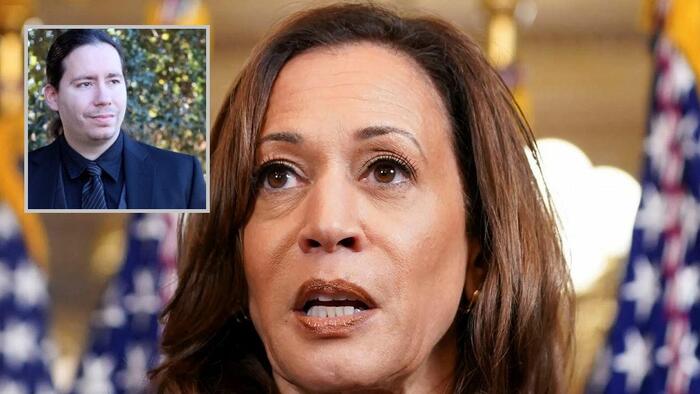Earlier this week, journalist Chris Rufo brought to light serious allegations of plagiarism against Vice President Kamala Harris, claiming that substantial portions of her book on crime are not original. Rufo cited a report from Dr. Stefan Weber, a noted expert in plagiarism detection, who stated that Harris plagiarized at least a dozen sections in her work, “Smart on Crime.” In what appears to be an effort to protect a favored candidate, the New York Times responded with a narrative that downplayed these allegations, framing them as an overreach by a conservative activist. They downplayed the reporting by claiming Rufo’s findings might be taken out of context, only for Rufo to refute those claims almost immediately. This situation has sparked an ongoing discussion regarding journalistic integrity and bias in mainstream media.
In its commitment to deflect criticism of Harris, the New York Times enlisted the expertise of plagiarism specialist Jonathan Bailey. Commenting initially on Rufo’s claims, Bailey suggested that the errors did not seem significant when analyzing the size of Harris’ book. However, it soon became apparent that the Times failed to provide Bailey with full access to the details of Weber’s findings. Bailey later expressed concerns on his blog about the lack of information he was given, stating that had he seen the complete dossier, he might have reached a different conclusion. The omission of crucial data from the Times paints a troubling picture of selective reporting, raising questions about the objectivity of the outlet.
Rufo did not shy away from criticizing the Times for their tactics. He highlighted how major media outlets, including ABC and CBS, have engaged in various forms of manipulation to protect Harris’s image, including misleading fact-checks and stealth edits during interviews. Rufo noted that this manipulation is symptomatic of a larger crisis within journalism, where certain narratives are favored over accurate reporting. The wave of discontent from conservative commentators regarding this issue hints at a growing frustration with perceived media bias, especially against public figures like Harris who find themselves at the center of such controversies. In this realm of political discourse, the role of legacy media is under scrutiny for prioritizing loyalty over truth.
Further investigation into the allegations revealed that the extent of plagiarism in Harris’s book is even more severe than initially reported. Rufo pointed out instances where Harris included long passages of text without proper citation, employing “verbatim plagiarism” that goes unacknowledged in academic standards. This type of misconduct raises ethical questions about her publication and suggests a troubling lack of rigor in Harris’s approach to writing. Critics argue that such behavior, while often dismissed as sloppy, reflects deeper issues regarding accountability and integrity that should be demanded of public figures, especially those in positions of power.
The response from criticism toward mainstream media regarding Kamala Harris’s alleged plagiarism is indicative of a larger trend in contemporary political discourse, where the public increasingly seeks transparency and accuracy from journalists. Rufo, entreating the New York Times to consider the full scope of Weber’s findings, expressed his frustration with the media’s apparent unwillingness to confront uncomfortable truths about one of their preferred subjects. When he reached out to the Times’ editor, Mary Suh, with concerns regarding the incomplete dissemination of evidence, he was met with resistance. This confrontation exemplifies the tension between journalistic standards and the pressures of establishing a narrative that aligns with certain political ideals.
The implications of these allegations extend beyond media bias or individual ethical breaches; they highlight a broader cultural debate regarding the responsibility of public figures to communicate honestly and the role of the media in holding them accountable. As Rufo made the dossier accessible to the public, he underscored a key point that lies at the heart of public trust: the demand for accountability transcends partisan ideologies. The controversy surrounding Kamala Harris, as emerged from the findings of Dr. Weber and reported by Rufo, calls into question not only Harris’s credibility but also that of the institutions supposedly dedicated to scrutinizing those in power. Ultimately, this incident serves as a potent reminder of the critical need for transparency and integrity in both political leadership and journalism.
In summary, the allegations of plagiarism against Kamala Harris, as unveiled by Chris Rufo and scrutinized by Dr. Stefan Weber, represent a significant challenge to the established norms of journalistic integrity and public accountability. The reaction from major media outlets, particularly the New York Times, raises alarms over potential bias while simultaneously revealing the complexities inherent in their reporting practices. As the public continues to grapple with these ethical dilemmas, the conversation shifts toward the necessity for both politicians and media organizations to prioritize truthful communication over ideological alignments. In navigating this landscape, the public’s expectation remains clear: demands for rigorous standards, transparency, and the ethical treatment of information are paramount for the health of democratic discourse.

